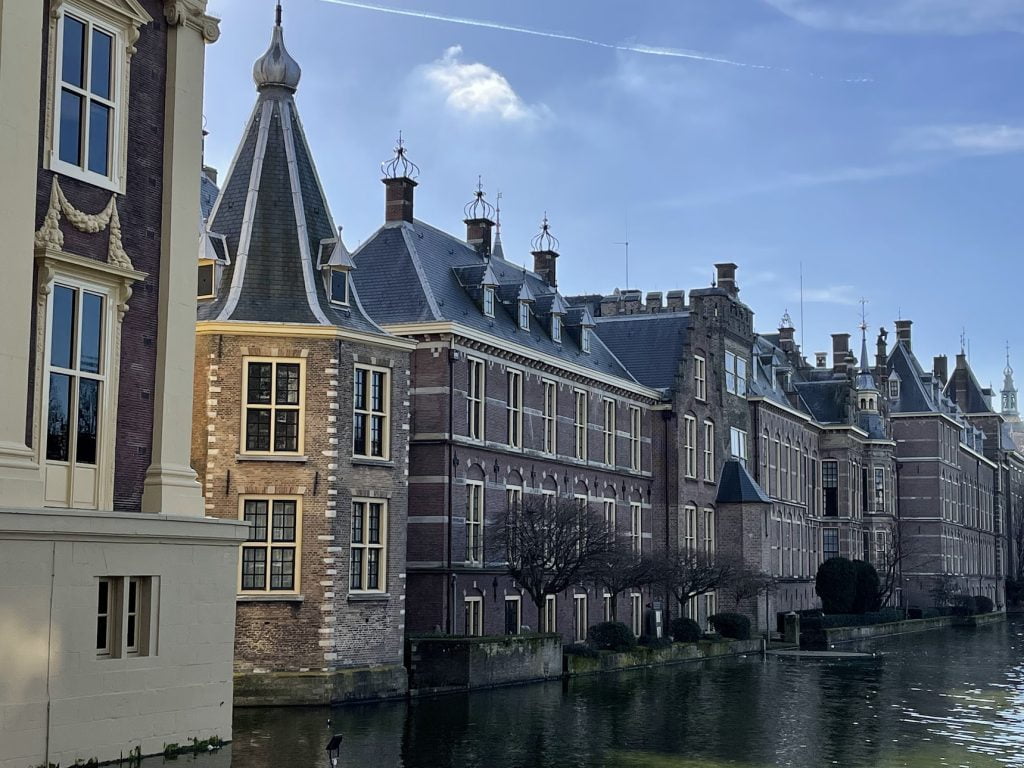The future of our mobility is on your ballot. The elections determine the course of Dutch traffic and transport.
In the spotlight of Dutch politics are the elections, a crucial moment when the future of the country is in the hands of the voters. One of the most discussed themes this year is mobility, a sector that is essential for economic growth and the daily lives of millions of Dutch people. While parties compete for the voters' favor, it is important to investigate which party actually does the most for our mobility.
The mobility plans of the largest parties vary considerably, each with their own vision of what the future of transport and traffic in the Netherlands should look like. From investments in sustainable transport solutions to improving infrastructure, each party presents a unique package of measures and promises.
The VVD, traditionally seen as a party that attaches great importance to infrastructure and economic growth, emphasizes improving the road network and supporting innovative transport solutions. Their plans include significant investments in both highway expansion and maintenance, with a focus on reducing traffic congestion and improving traffic flow.
The PvdA, on the other hand, emphasizes the need for a more sustainable mobility sector. Their proposals focus on expanding the public transport network and encouraging alternative modes of transport such as cycling and electric driving. This approach is aimed at reducing CO2 emissions and promoting a healthier lifestyle among the population.
GroenLinks goes one step further in their ambition for a green mobility turnaround. They call for a radical overhaul of the current mobility system, with strong investments in public transport and cycling infrastructure, as well as limiting the growth of road traffic, especially in urban areas.
D66 focuses on balancing economic growth with sustainability. Their program includes plans for both improving infrastructure and investing in sustainable means of transportation. They strive for an integrated mobility system that is both efficient and environmentally friendly.
The CDA emphasizes the importance of accessibility, especially for people in rural areas. Their focus is on ensuring good connections between urban and rural regions, with a mix of investments in roads, public transport and cycle paths.
Although the New Social Contract party has yet to work out specific details about their mobility plans, the expectation is a focus on sustainable and innovative transport solutions. This may include supporting electric transport, promoting alternative means of transport such as cycling, and investing in sustainable infrastructure. In line with their general vision, the New Social Contract emphasizes the importance of transparency and citizen participation in developing mobility policies.

Each party therefore brings its own vision and approach with regard to mobility. The choice of voters today will not only determine who will be in power in the coming years, but also the direction of the mobility sector in the Netherlands. In a country where there is great dependence on efficient transport, this election represents a crucial turning point in how the Netherlands will move towards the future.
The PVV often emphasizes the importance of car use and sees the car as a crucial part of Dutch mobility. They advocate improving infrastructure for the benefit of motorists, such as expanding and maintaining the road network. The PVV is traditionally opposed to road pricing and other measures that they see as punishing motorists.
The Party for the Animals focuses on a radically different approach to mobility, with a strong emphasis on reducing the impact on the environment and animal welfare. Their proposals include measures to discourage car use and promote alternatives such as cycling, walking and public transport. They aim for a reduction in speed limits and a strong focus on reducing air pollution.
Forum for Democracy, on the other hand, has a more traditional view of mobility, with an emphasis on improving the existing road network and supporting the automotive industry. They see the car as an essential part of Dutch mobility and argue for more investments in roads and reducing the tax burden on motorists.
The Socialist Party (SP) focuses on keeping public transport affordable and accessible for everyone. Their plans include nationalizing public transport and reducing costs for users. The SP sees public transport as a public service that should be accessible to everyone, regardless of income or place of residence.
The Christian Union strives for a balanced approach to mobility, with an emphasis on sustainability and accessibility. They advocate investment in both public transport and road networks, with special attention to the needs of rural areas and smaller communities. The party sees mobility as a way to promote both economic growth and social cohesion.
Today's elections offer voters a wide range of choices regarding the future of mobility in the Netherlands. From sustainable, green initiatives to supporting traditional transport methods, each party presents a unique vision that will determine the course of Dutch mobility for years to come. It is up to the voters to decide what direction they want for the country.

With the election today, voters will have the opportunity to choose the direction they believe best suits their needs and vision for the future of transportation in the country.
The DENK party focuses on inclusive mobility, with special attention to neighborhoods and communities that are traditionally less well served by public transport. They strive for equal access to transportation for all walks of life and emphasize the need for investment in public transportation in underserved areas.
Volt Netherlands, as a pan-European party, Volt emphasizes improving international connections and sustainable transport. They advocate better train connections between European cities and encouraging green mobility options such as electric cars and bicycles.
JA21 focuses on pragmatic solutions to mobility problems, with an emphasis on efficiency and economic feasibility. They support investments in both the road network and public transport, but with a critical eye on the costs and benefits of major infrastructure projects.
BIJ1 approaches mobility from a social perspective, with an emphasis on accessibility and equality. Their mobility policy aims to ensure accessible and affordable transport options for all social groups, with special attention to people with disabilities and socio-economically disadvantaged groups.
50PLUS focuses on the mobility needs of the elderly, with policies focused on accessibility and safety. They call for better public transportation options for seniors, as well as safer roads and better facilities for elderly pedestrians and cyclists.
The Pirate Party has a unique approach to mobility, with a strong focus on innovation and technology. They advocate the use of technological solutions to make transport more efficient and sustainable, such as smart city initiatives and the support of autonomous vehicles.
Finally, the SGP focuses on preserving traditional values in their mobility policy, with an emphasis on maintaining the existing road network and supporting the transport sector. They are critical of large-scale investments in new infrastructure projects and advocate a prudent approach to government spending in the sector.



